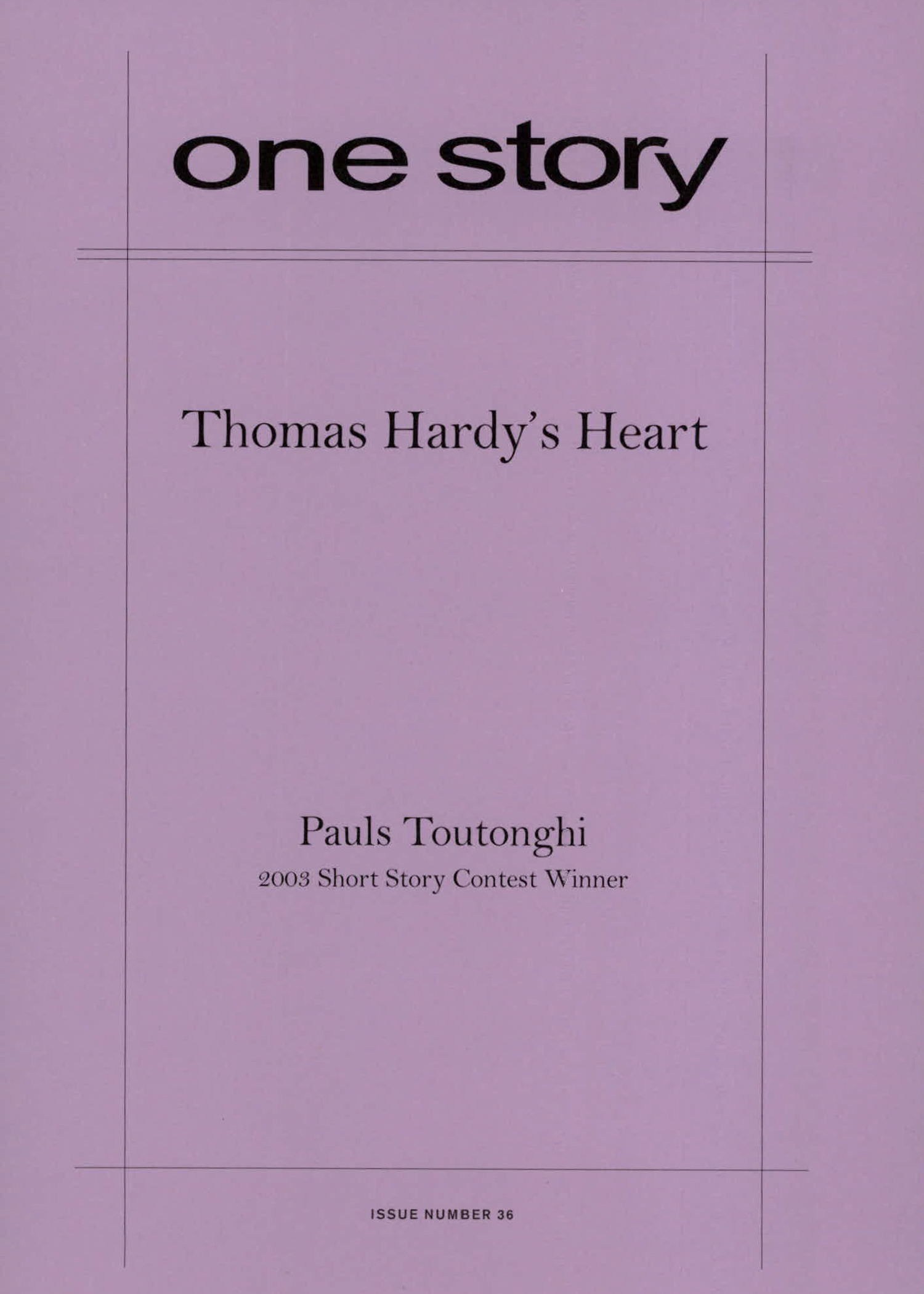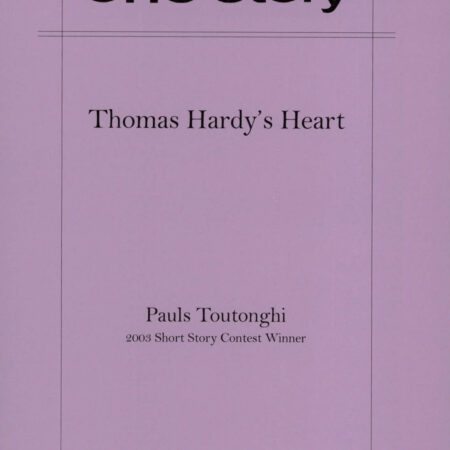
Thomas Hardy’s Heart
$2.50
24 in stock
Excerpt
My father—Elias Abasi—had the storyteller’s gift. His voice was fueled by the cigarettes he smoked. Pack after pack of Gauloises, stubby cigarettes, damp with the scent of raw tobacco. I remember him sitting at the kitchen table, drinking Turkish coffee and dangling ghostly white cigarettes from his fingers. I came to understand that they were a prop. They were as necessary as oxygen.
Petit, écoute, he’d say. Little one, listen, and then the luminous words would bubble up. Anything was possible. If it was a serious story, then we could expect a tirade about the Egyptian government or Nasser, or a volley in defense of Beleaguered Former President Nixon, a man whose picture hung in our living room, directly below the Sacred Heart of Jesus. If it was a religious story then we could expect miracles or a litany from the lives of the saints. If it was a whimsical story then we didn’t know what to expect. Something from his own childhood? Something from the Egyptian legends? Something impossibly fantastic? Children flying with wasps and butterflies, superheroes who could lift cars and save the world?
Pauls Toutonghi
Pauls Toutonghi was born in Seattle, Washington, in 1976, to an Egyptian father and a Latvian mother. He has worked as a burrito roller, a pizza delivery driver, a waiter in a retirement community, a vendor of vintage baseball jerseys, a project editor for Atlantic Coast Jet, a telemarketer, and a research assistant for the Complete Poems of Alfred Lord Tennyson.
He received his MFA from Cornell. He now teaches creative writing at Middlebury College, in Vermont. His work has appeared in various magazines, including the Boston Review, Glimmer Train, and Zoetrope: All-Story. He is working on a novel, entitled, I Was Yuri Mishkin.
Q&A by Hannah Tinti
- HT: Where did the idea for this story come from?
- PT: I was in England and happened to go to Stinsford Abbey. A friend of mine told me the story about Hardy’s heart—how it was cut out and buried separately from his body. How gruesome. But then, when I visited the gravesite, for some reason it was immensely powerful. Bright sun in the sky, green grass, cool breeze, and the grave of Hardy’s heart. The image stayed with me for years. I tried to write a poem about it, unsuccessfully. Then, the idea came to me that it could serve as the focal image in a story, in a story about never being truly at rest.
- HT: What was the most challenging aspect of writing this story?
- PT: Well, so then I had this image, and I was trying to write stories about immigration, about the dynamics of families who were not at ease in America. My dad grew up with the English colonial legacy in Cairo, and while Hardy wasn’t one of his favorite authors—I lifted a few details from his life. (Sorry, dad.) But still—I had the Hardy, and I had the character moving from Egypt to America, and I had the storytelling aspect of it in place. But it wasn’t a story yet. More like a series of connected snapshots. I had to figure out something to bind them all together. My own taste would have probably been to leave them as snapshots - but then, people might have asked that dreaded question: How is this a story?
- HT: Why is storytelling so important to Eli? How does this tie into his experience as an immigrant?
- PT: I think that, in this story, Eli has spent his life surrounded by a culture that is not his own. So in a way, storytelling is his defense against this. It is the way that he blockades himself in a familiar space. He can mix French and English; he can use his own, idiosyncratic vocabulary. He can make the events of his life into something beautiful. When you go from professor to janitor—as my own grandfather did—it can be something of a shock. I think that storytelling is the arena in which Eli makes his own rules. He’s in control.
- HT: Do you think that storytelling is inherited, passed from generation to generation?
- PT: Maybe. There’s a wonderful book by one of my favorite writers, Patrick Chamoiseau, called Solibo Magnificent. The book is all about storytelling, about how language and words move through the world. Solibo is a storyteller, and he inspires almost everyone he meets. So I think that storytelling can be learned from anyone. Listening is the only necessity. I regularly steal my best material from other people—just from listening to other people talk.
- HT: How long did it take you to complete this story?
- PT: The story took about three years to develop. The idea was always there, bobbing around. Actually sitting down to write it took me about a month or so. Then, another six or seven months of revision. The folks at One Story were very kind, and guided me through several different drafts. Hannah’s work—and the work of everyone else at the magazine—was a tremendous help.
- HT: What is the best bit of advice about writing you have ever received?
- PT: My friend, Jay Parini, is always telling me to write a thriller—a spy novel, or a big commercial blockbuster. Why not? I’ve even developed a pseudonym: Jake Ohio. I could deal with making money from writing, right? I’m prepared. I’d happily make Robert Ludlum’s salary. Or Danielle Steele’s.
- HT: What are you working on now?
- PT: I am finishing a novel, I Was Yuri Mishkin. The novel also deals with a father-son relationship. It’s set in 1989, right before communism unravels. The book focuses on the immigrant’s experience in a Midwestern city—in this case, Milwaukee, Wisconsin. The central character is a kid who’s growing up with Soviet-refugee parents. There’s a lot of Latvian food and beer and speculation on the future of the USSR. I think of it as a comedy of manners, without the manners.
